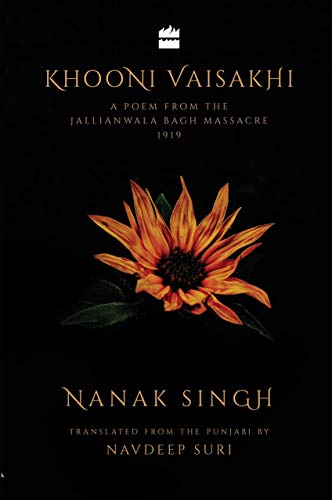Writers and poets have always taken note of history. Sometimes, when history is exceptionally brutal and bloody, the poet may fall silent but the prose writer is compelled to pick up his pen, and sometimes it is the reverse. Some events shake the conscience of thinking men and women the world over, send seismic tremors across the length and breadth of a nation, unspool events of unforeseen consequences and find reflection not only in the literature of their age but for generations to come. The cold-blooded massacre of peaceful protestors at Jallianwala Bagh on 13 April 1919 is one such incident. It marked a defining moment in the history of modern India. It is significant from a purely literary perspective too: the spurt in overtly political activities and a growing political consciousness that began to find reflection in Indian literature can be traced directly to it. Khooni Vaisakhi, a long poem in Punjabi, written by 22-year old Nanak Singh (1897-1971) who was present in the Bagh and recorded not merely an eye-witness account but also a subaltern history is one such intervention.

Commemorating a Dark Moment in India’s History
Rakhshanda Jalil
KHOONI VAISAKHI: A POEM FROM THE JALLIANWALA BAGH MASSACRE, 1919 by Nanak Singh. Translated from the original Punjabi by Navdeep Suri HarperCollins, 2019, 128 pp., 399.00
October 2020, volume 44, No 10
